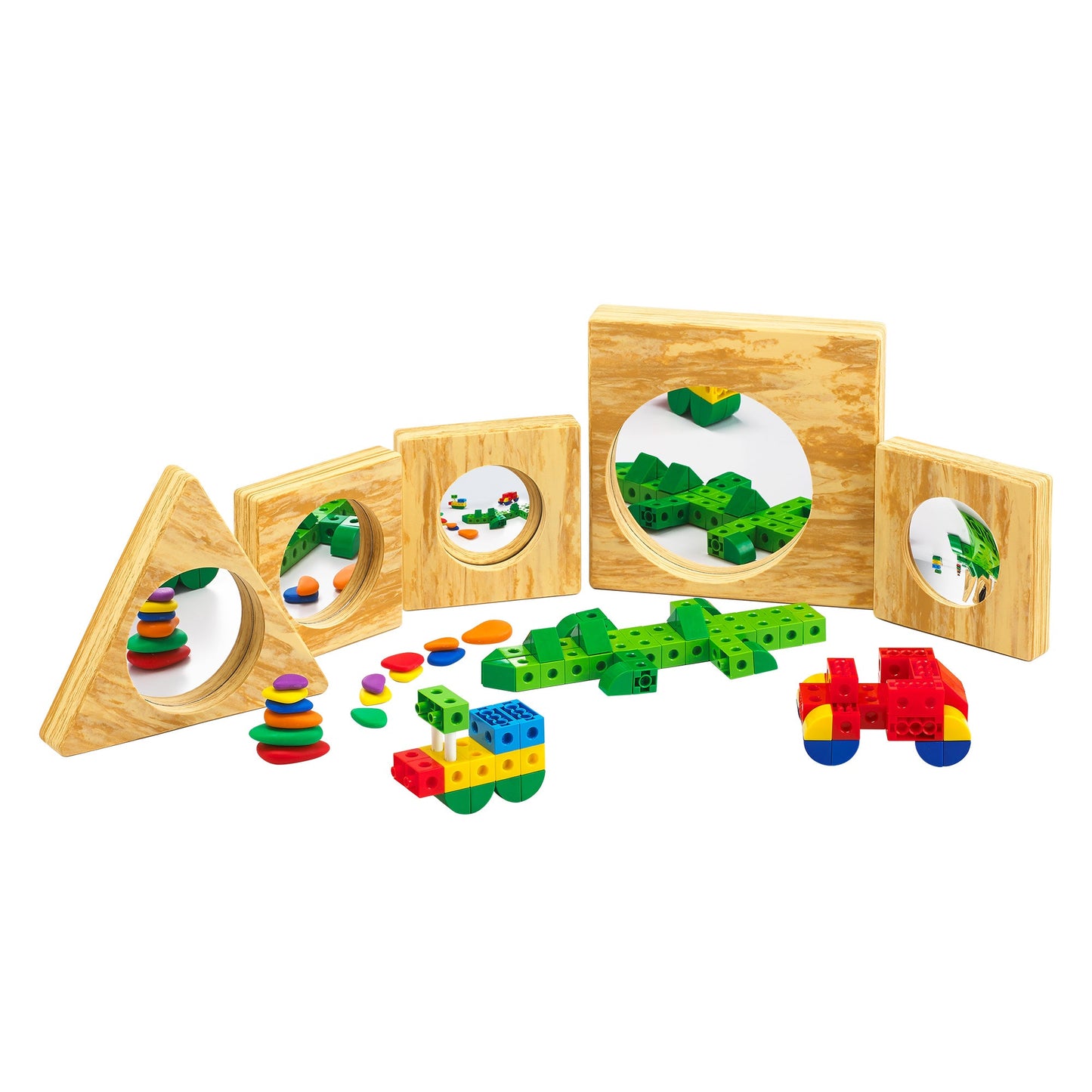
As parents and caregivers we’re all looking for ways to encourage children to play, explore, and grow without screens. While technology certainly has its place, too much screen time can impact sleep, attention spans, and even social development in young children. The good news? Children thrive on screen free activities that promote creativity, independence, and learning through play.
At Edx Education, we’re passionate about helping families rediscover the joy of screen-free play. Through our award-winning educational toys, downloadable resources, and our Play, Learn & Create podcast, we advocate for play-based learning that builds confident, curious learners from the very beginning.
Why Reduce Screen Time?
Understanding how to reduce screen time starts with knowing why it matters. Research shows that excessive screen use in early childhood can impact language development, attention span, and physical activity. But rather than banning screens altogether, it’s about creating balance. Replacing digital time with hands-on, engaging, screen-free activities for kids is a great place to start.
Creating a Play-Ready Home
Children are naturally curious—but they often need a little invitation to dive into play. One of the best strategies is to set up engaging play corners at home. These don’t have to be elaborate. A small space with a soft mat, a basket of toys, and a theme—like building, role play, or creative art—can spark independent play.
Here are a few Edx Education-inspired ideas:
- Sensory Corner: Use sand, water beads, or kinetic sand with scoops and cups for tactile exploration.
- Construction Station: Add Linking Cubes, Math Cubes, or MyGears® to encourage problem-solving and STEM thinking.
- Art Tray: Provide paper, crayons, scissors, and stickers for open-ended art fun.
Screen-Free Play Kits
Another wonderful idea is to prepare screen-free play kits—small, themed activity boxes that your child can explore independently. For example:
- Pattern Play Kit: Include Pattern Blocks, lacing cards, and shape stencils.
- Math Fun Kit: Add number rods, hundred boards, and counters for playful maths practice.
- Role Play Kit: Fill with costumes, soft toys, and props for storytelling and imaginative play.
These kits are ideal for rainy days, quiet time, or simply rotating through the week.
Toy Rotation Ideas for Fresh Inspiration
Too many toys can be overwhelming for young children. Instead, try toy rotation. This means putting away some toys and reintroducing them later to make them feel new again. Focus on the best non-digital toys ike Edx Education’s Rainbow Pebbles®, Linking Cubes, and Joey Jump that offer open-ended, creative possibilities.
Set up 4–5 play themes and rotate every week or two:
- Week 1: Building & Engineering
- Week 2: Sensory & Messy Play
- Week 3: Role Play & Imagination
- Week 4: Maths & Patterns
Not only does this keep things fresh, but it also encourages longer attention spans and deeper engagement.
Encouraging Independent Play
Looking for independent play ideas? Start small. Set up one activity at a time with minimal instructions. Children build independence through practice. Try placing a simple challenge like:
“Can you build a tower taller than your teddy?”
“Can you make a pattern with these Rainbow Pebbles®?”
Keep expectations low at first just 10–15 minutes of solo play is a success! Over time, children learn to explore, persist, and enjoy their own company, laying the foundation for focused learning in the future.
Resources for You
At Edx Education, we’ve created downloadable activities, printables, and inspiration for screen-free learning. Tune into our Play, Learn & Create podcast for expert advice and playful parenting tips from educators around the world.
Screen-free doesn’t mean boring. It means opening a door to imagination, confidence, and joyful discovery. Let’s raise happy, resilient children—one playful moment at a time.
By Heather Welch, Author of Happy Children Play and General Manager, Edx Education UK
